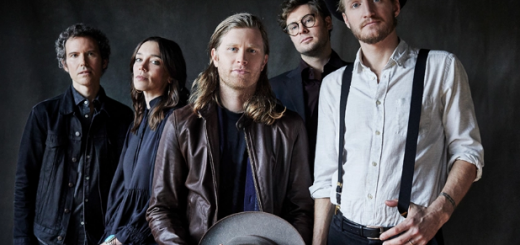Charlie Boy by The Lumineers Lyrics Meaning – An Anthem of Generational Expectations and Tragic Valor
Lyrics
First born in ’44
Kennedy made him believe
We could do much more
Oh oh oh oh oh oh oh oh oh oh oh oh oh oh
And Lillian, don’t hang your head,
Love should make you feel good
In uniform you raised a man,
Who volunteered to stand
Oh oh oh oh oh oh oh oh oh oh oh oh oh oh
Play the bugle, play the taps
Make your mothers proud
Raise your rifles to the sky, boys
Fire that volley loud
News was bad on Upland Ave.,
Metuchen mourn our loss
Sons rebelled, while fathers yelled,
And mothers clutched the cross
Oh oh oh oh oh oh oh oh oh oh oh oh oh oh
Play the bugle, play the taps
Make your fathers proud
Raise your rifles to the sky, boys
Fire that volley loud
As The Lumineers’ lilting melodies intertwine with a tapestry of stripped-back instrumentals, ‘Charlie Boy’ emerges as a poignant narrative steeped in generational sacrifice and the echoes of war. It’s a song that carries weight like a family heirloom, passed down through the bittersweetness of loss and pride.
The depth of ‘Charlie Boy’ stretches beneath its surface like a hidden stream. The subdued storytelling met by Wesley Schultz’s emotive vocals beckons us to look through the annals of history, to understand where the lines of personal destiny and societal duty blur, and to find the heart of a story that bridges the gap between a family’s love and a nation’s call.
A Portrait of the First Born — ’44 and Forevermore
The song mentions a ‘Charlie boy’, a first born in ’44, a birth date that throws us into the thick of World War II. Contextually, The Lumineers are painting a picture of generational expectation, where the eldest son is poised to inherit not just the family legacy, but the weight of patriotic duty.
Kennedy’s mention deepens the context, as he became an emblem of hope and progress. The allure of Camelot’s king and his invigorated vision of America as a global force for good coerces young men like Charlie to believe in something greater. It’s this belief that often spurred the youth of that era to join a cause larger than themselves.
The Haunting Refrain: Lamentation as a Lyric
The cry of ‘Oh oh oh’ throughout the song is not just filler. Each refrain serves as a haunting lamentation, a chorus of souls that resonates the uncertainty, the anticipation, and the despair that comes with sending loved ones off to war.
It’s in these wordless bars we feel the heavy heart of The Lumineers, as they paint auditory memorials, not just for ‘Charlie boy’ but for every son and daughter whose story entangles with the bitters ofweet thread of hope and loss.
The Uniform of Love — Maternal Echoes in War’s Wake
In a tender turn of phrase, ‘Charlie Boy’ honors those back home, with Lillian’s character symbolizing both the strength and sorrow of those who dress their loved ones for battle. ‘In uniform you raised a man, who volunteered to stand’ speaks to the potent mix of maternal pride and fear. It casts war in an intimate light, one that does not glamorize but acknowledges the human cost.
This complex emotion is what The Lumineers capture so delicately — a mother’s love, so bound to the idea of nurturing, is twisted into an act of preparation for a child’s potential demise. Lillian’s pain is palpable, her love both a source of strength and a precursor to possible grief.
Taps and Echoes — The Resonance of a Final Salute
The lumineers wield ‘Play the bugle, play the taps’ as a motif of both honor and finality. It conjures the solemnity of military funerals, the end of life’s melody, and the silence that follows. The lyrics sharpen the duality of valor and tragedy, illustrating the natural human compulsion to find pride in the ceremonial send-off, even amidst the devastation of loss.
By urging the audience to ‘make your mothers proud, raise your rifles to the sky boys, fire that volley loud,’ The Lumineers are reflecting on the paradoxical nature of war—that even in death, there is a communal searching for glory and meaning, no matter how deep the cut of mourning goes.
The Unspoken Heroes of Upland Ave — A Cross-Generational Struggle
Metuchen, a real town in New Jersey, becomes a microcosm for American families during times of war. ‘Sons rebelled, while fathers yelled, and mothers clutched the cross’ is not just a portrayal of one family’s strife but is symbolic of the generational rifts that tear through the fabric of society when young men are called to arms.
The song is thus a mirror held up to the face of any nation which sends its youth to war. It is a reminder of the echoing impact on the small, seemingly inconsequential streets like Upland Ave, which, nevertheless, harbor the most poignant tales of courage, dissent, and the enduring human spirit.








